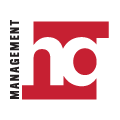In many countries, volunteerism is instilled at a young age. Volunteering and service to the community is the cornerstone of summer vacation or woven into after school programs. It even finds a place in many corporate team building experiences. Many organizations, including MHQ and our clients, would not operate without the many volunteer board and committee members.
April is National Volunteer Month. One of the many ways to be involved in your community is to volunteer; this month (and every month), Management HQ thanks the many volunteer board and committee members that we work with. Our work would not be possible without you. Thank you.

As part of National Volunteer Month, MHQ Events and Outreach Coordinator Rebecca Merrill spoke with Alfred C. Johnson, Board President for the National Association for Regulatory Administration (NARA), about inclusive board leadership. Following are excerpts from that interview.
Rebecca Merrill: As board president of NARA, how do you impact broader conversations and efforts around increasing DEI in association and non-profit board leadership?
Alfred C. Johnson: Protection, integrity, leadership, learning and collaboration are core values NARA embraces to achieve our mission of promoting the health and safety of children and adults in regulated settings. In order to effectively regulate and promote this mission for all children and adults, we must engage every aspect of our society.
Engagement is key. Reaching out and listening to others. As board president, I have heard from NARA members, individual regulators, providers or other stakeholders who have shared their thoughts and experiences surrounding diversity, equity and inclusion (DEI). Some have indicated they feel comfortable sharing with me because of who I am.
I hope to continue this dialogue to explore opportunities to gently challenge NARA board members, general members, and others to explore DEI topics and ensure our structure and programs are inclusive and eliminate any unconscious biases. All children and adults must experience a high quality of care and services.
RM: What advice to do you have for other board presidents who are working to increase DEI within their organizations?
AJ: I would encourage board presidents to first take a personal inventory of your experiences, thoughts and beliefs. Do you believe what you are saying? What would others say about your organization?
Look at the makeup of your Board, your staff and those you work with. Is there a need for greater diversity of thoughts, experiences, cultures, etc.? If so, develop a plan to increase that diversity. Be intentional with your plan.
Furthermore, set an organizational tone for treating internal and external individuals and groups fairly:
- Implement a DEI committee that involves internal and external parties.
- Sponsor an annual training on DEI.
- Be creative and find ways to leverage the abilities of all stakeholders.
- Train your leaders to listen and support this organizational change.
- Commit to transparency in decisions, outcomes, and processes. Are your organizations decisions understandable, inclusive of the thoughts/viewpoints of individuals impacted by them, free from bias, based on measurable capabilities, demonstrated efforts and sound data?
RM: How do you support diversity, equity and inclusion (DEI) in your work?
AJ: As a leader within my profession and my community I continually assess my biases and how they impact how I interact with others. Showing the courage and determination to resolve those biases and to respectful challenge others to do the same.
I have advocated for the evaluation of organizational policies, processes and staffing in order to reduce the unconscious preferences that may exist.
Authenticity is extremely important. If I believe in diversity, equity and inclusion, it is reflective in my attitude, my values and what I say and do. A question I often ask myself is, ”Does what I am saying or doing represent who I truly am?” One of the biggest issues I see when a person has to stop being their true self because of the dominant culture. There is value in hearing from those who may see or experience things from a different cultural viewpoint.
Lastly, there is a saying I remember from my college days: “It is not about being right; it is about doing the right thing. If I believe in doing the right thing, I will include all viewpoints and all stakeholders and ensure there is diversity of thoughts, cultures and experiences at the table to help my organization do the right thing
Learn more about Alfred C. Johnson:
Alfred C. Johnson currently serves as Board President for the National Association for Regulatory Administration. Alfred has more than 25 years of professional experience serving children, adults and families in child care, child welfare and adult care settings. He has extensive experience working with local, state and national entities to ensure the health, safety and well-being for citizens within his professional scope.
His recent activities include the development of a national coalition to examine and develop assisted living best practices for regulation implementation; establish a network with regulators across the country; promoting quality of care and life within the provider communities and serving.
Alfred is the Bureau Director for the Wisconsin Bureau of Assisted Living within the Division of Quality Assurance. As Director, Alfred is responsible for directing the licensing/certification and ongoing survey activities for the Bureau of Assisted Living. The Bureau provides regulatory oversight for more than 4,250 assisted living facilities with a bed capacity of 63,600. Alfred works collaboratively with funders, advocates, providers, trade associations, families, residents and other stakeholders.
Alfred is a frequent speaker at health care conferences, community events and serves as the State’s emergency support function 6 lead. Alfred lives in Wisconsin is interested in God, sports, and family.
# # # # #
Brilliant Board Leaders choose MHQ to run the business of their associations. Submit a 3-minute RFP.



